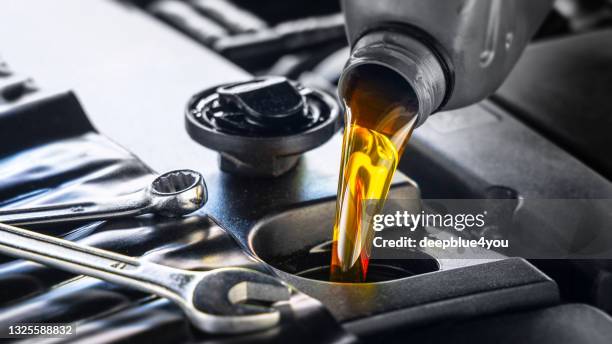Optimize Your Vehicle'S Efficiency With Regular Oil Adjustments
Keeping your lorry's efficiency is a complex endeavor, with routine oil changes standing out as an important component. Fresh engine oil plays a pivotal function in guaranteeing ideal lubrication, minimizing rubbing, and stopping wear on necessary parts. Lots of drivers forget the signs that indicate a need for an oil change, possibly endangering their lorry's long life.
Value of Routine Oil Modifications
While numerous vehicle owners might ignore the relevance of routine oil changes, neglecting this crucial upkeep task can bring about extreme repercussions for engine performance and longevity. Engine oil plays an essential duty in oiling relocating parts, reducing rubbing, and stopping overheating. Over time, oil wears away because of exposure to warmth and impurities, which decreases its effectiveness.
Falling short to alter the oil frequently can cause the build-up of sludge and particles, which can block important engine parts and cause increased wear. This not just jeopardizes engine efficiency however can also cause costly fixings or also overall engine failure. In addition, old oil loses its capacity to reduce the effects of acids produced throughout burning, which can cause corrosion and additional damage.
Additionally, several vehicle producers advise details oil change intervals, usually based on mileage or time. In summary, regular oil changes are not simply a tip; they are an essential element of accountable lorry upkeep that protects the engine and enhances overall performance.
Benefits of Fresh Oil
Altering to fresh oil provides many advantages that directly improve engine performance and effectiveness. Among the primary advantages of fresh oil is its exceptional lubricating homes. New oil decreases rubbing in between engine parts, which not just reduces wear yet additionally adds to smoother operation. This results in enhanced gas performance, as the engine does not have to work as hard to get rid of resistance.
Additionally, fresh oil properly cleans up the engine by suspending contaminants and preventing sludge build-up. With time, oil ends up being polluted with dust, metal particles, and burning by-products. On a regular basis replacing oil ensures that these harmful materials are eliminated, promoting a cleaner and much healthier engine atmosphere.
Furthermore, fresh oil help in ideal temperature law. It dissipates warmth extra successfully, stopping overheating and possible damages to engine parts. This is especially important throughout peak performance scenarios, where warm build-up can hinder engine functionality.
Signs Your Oil Demands Changing
Engine oil is the lifeblood of your lorry, and acknowledging when it requires changing is important for maintaining optimal performance - Oil Change Lockhart. Numerous signs suggest that it's time for an oil adjustment, and staying vigilant can prevent engine damage and pricey repairs
First, inspect the shade and uniformity of the oil. Fresh oil is generally brownish-yellow and smooth, while old oil might appear dark and gritty, suggesting contamination and lowered effectiveness. A modification in thickness can additionally signify that the oil has damaged down and is no much longer properly oiling engine components.

One more indication is the oil modification light on your dashboard. This sharp acts as a tip that the oil see this here has actually reached its lifespan or that there is an underlying issue requiring focus. Additionally, unusual engine noises, such as knocking or ticking, may suggest inadequate lubrication because of degraded oil.
Finally, if you observe oil places or pools under your lorry, it might show a leak that requires instant examination and feasible oil adjustment. Being alert to these indications will ensure your engine operates smoothly and efficiently.
Choosing the Right Oil
Choosing the suitable oil for your car is crucial for making certain optimum efficiency and durability. Engine oils are available in different types and viscosities, each formulated to fulfill details needs. The very first consideration ought to be the manufacturer's recommendations, which can typically be located in the owner's manual. This guidance will certainly route you toward the appropriate viscosity quality, such as 5W-30 or 10W-40, which suggests the oil's thickness at different temperature levels.
Following, think about the type of oil: standard, artificial, or you could try these out a blend. Standard oil is originated from crude oil and is ideal for older cars, while synthetic oil uses exceptional defense and performance for modern engines, specifically under extreme problems. Synthetic blends incorporate the benefits of both and are usually an economical option.
In addition, look for oils that fulfill sector criteria, such as API (American Petroleum Institute) or ACEA (Organization des Constructeurs Européens d'Automobiles) accreditations. These indications guarantee that the oil has actually been evaluated for top quality and performance. Ultimately, selecting the appropriate oil not just improves engine performance yet additionally contributes to the total health of your automobile, paving the method for smoother driving experiences.
Oil Adjustment Frequency Recommendations

Factors affecting oil change regularity include driving problems, such as stop-and-go traffic, severe temperatures, and lugging heavy lots. Under serious problems, it may be prudent to alter the oil more often see to avoid engine wear. In addition, some modern automobiles come geared up with oil life surveillance systems that offer tailored recommendations based upon driving habits, which can additionally optimize the oil modification timetable.
It's essential to consult your proprietor's guidebook for specific suggestions customized to your car. Sticking to these standards not only protects engine wellness but likewise boosts fuel effectiveness and lowers emissions. To conclude, normal oil changes, timed properly based upon various elements, are a basic facet of vehicle maintenance that can substantially influence performance and longevity.
Final Thought
